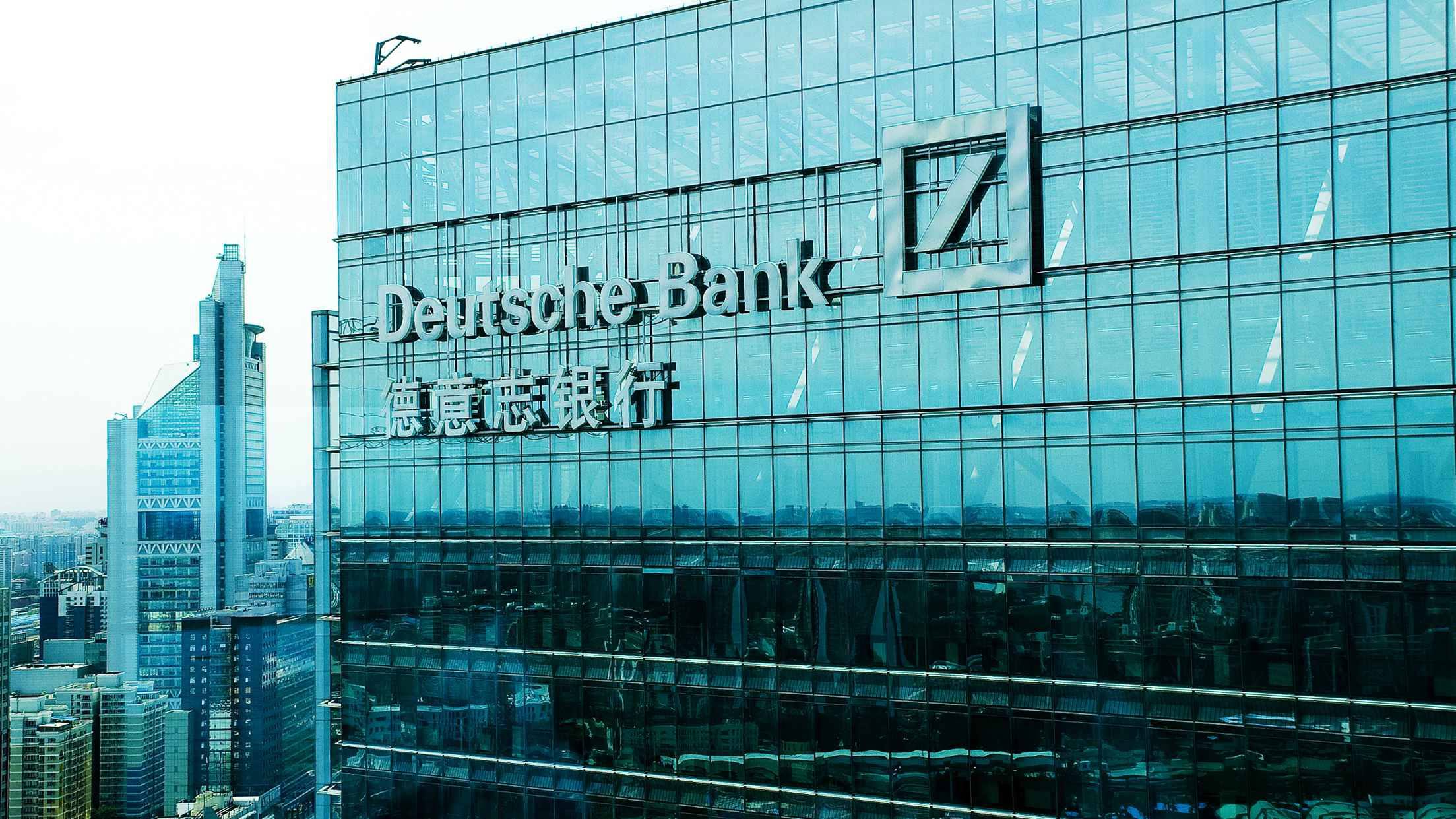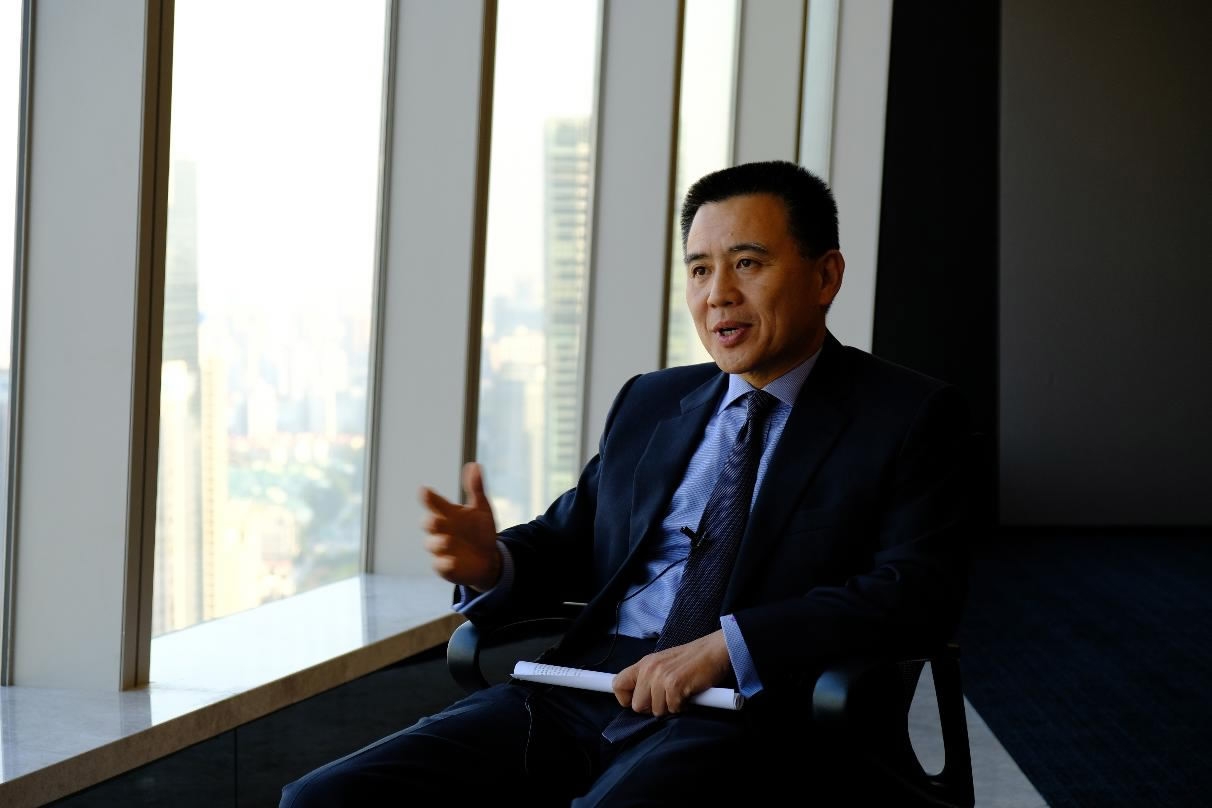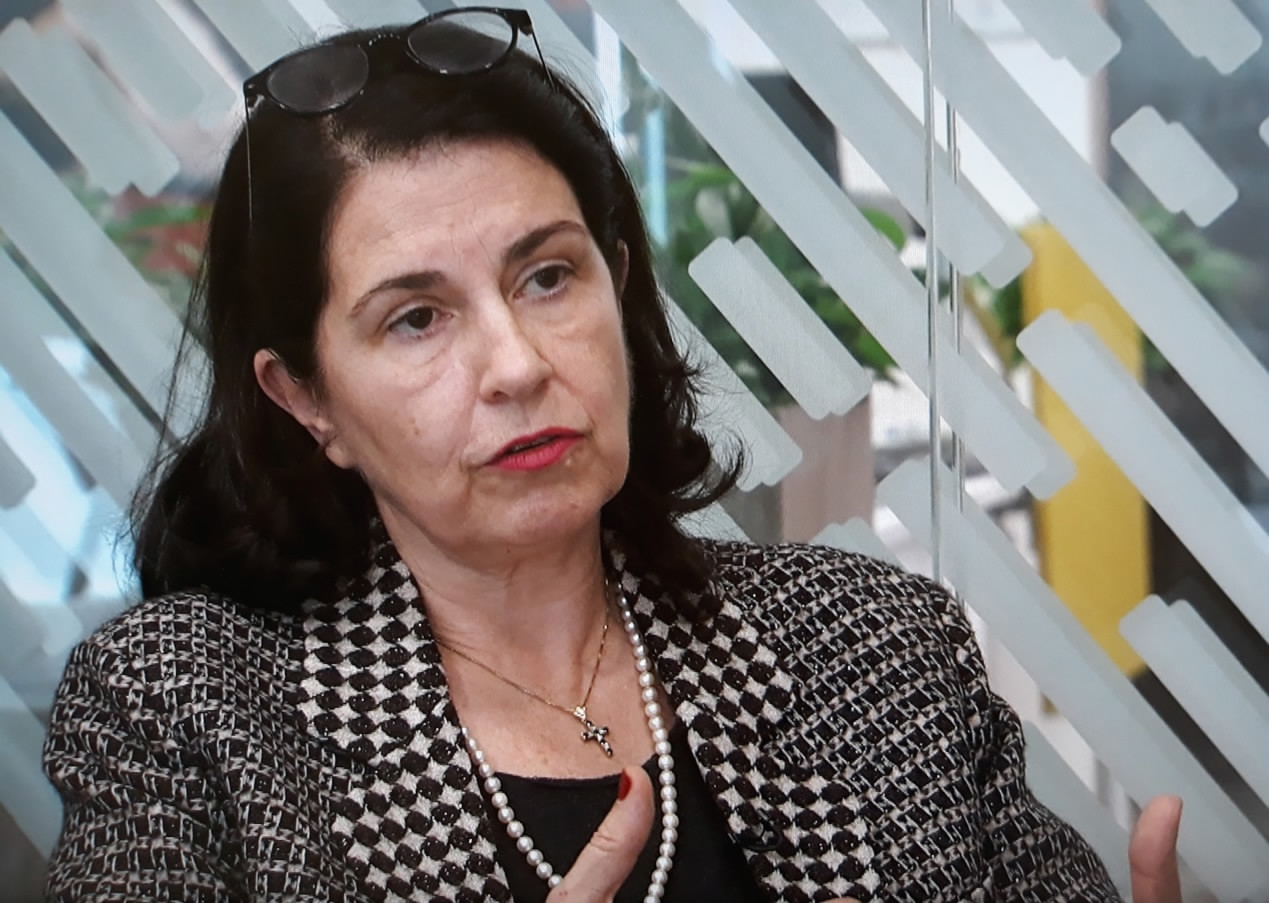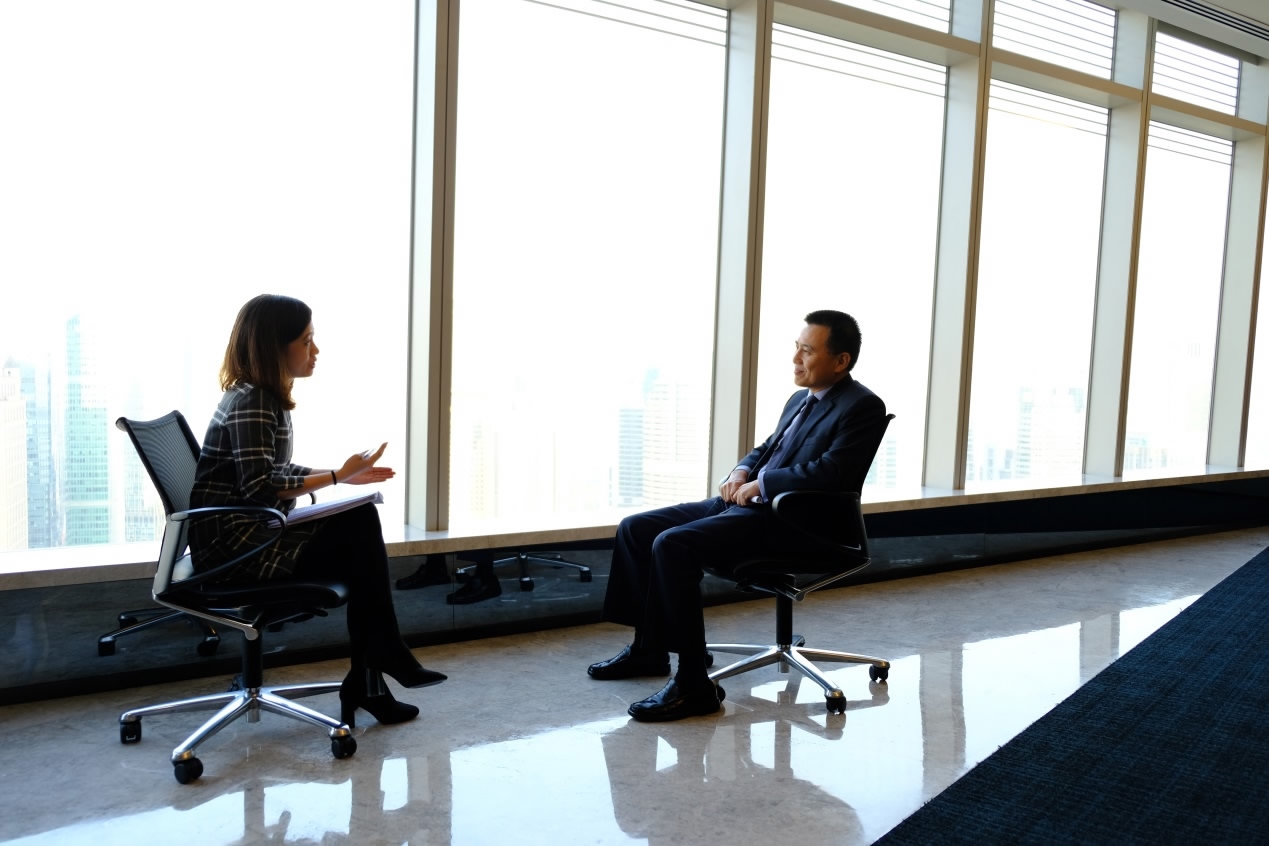
Business
15:44, 03-Dec-2017
Win with China: Foreign banks opine ‘China still one market we can’t dismiss’
By CGTN's Wei Lynn Tang

Foreign banks have long planted their foothold in China, with some easily over a hundred years.
However, their share of assets in the total banking sector, remains small (at below 2 percent since 2009) – and if not, decreasing – over the past five years.
Granted, the asset base in absolute terms of these foreign banks in China has been increasing. But there is perhaps also more than meets the eye to this measure.
Strength in global network, risk management
Gao Feng, Chief Country Officer for Deutsche Bank China observes that the world has become so interconnected today that looking at one location in isolation could be the wrong approach.
“We’re not here clearly to compete on the same thing. If you look at this from a slightly different angle, [our] risk management and product expertise, as well as how do you operate on a global scale, I think that is something we have contributed greatly to this market,” Gao said.

Gao Feng, Chief Country Officer for Deutsche Bank China /CGTN Photo
Gao Feng, Chief Country Officer for Deutsche Bank China /CGTN Photo
Societe Generale concurs. “You should look at foreign banks in what they are doing with Chinese corporates globally,” says Anne Marion-Bouchacourt, its Chief Country Officer for China.
By working with the French bank’s global bases, client can benefit from the larger capital of the banking group.
Acknowledging it isn’t easy to compete against Chinese banks, Marion-Bouchacourt says Societe Generale has been bringing values in the areas of natural resources, acquisition financing and hedging of risk.
Bullish on Belt and Road initiative
The international footprint of these foreign banks can come in handy, as their network stands at more than 60 countries along the Belt and Road.
In fact, Deutsche Bank in June signed a three-billion-US-dollar deal with China Development Bank to fund infrastructure projects in the initiative. Gao confirms that the bank is working on some of the projects now, but refuses to elaborate more.
When asked on the present level of skepticism or acceptance in the initiative, he says: “Reality is people have come to realize it is a genuine proposal to try to lift everyone up in terms of development, and interconnect one other in a much more globalized way.”
In Gao’s own words, China has been a big beneficiary of globalization over the last 30-40 years, and that it is “now China’s turn to ‘return this favor’ and tell the world that it can help increase people’s living standards by building the infrastructure."
Meanwhile, Marion-Bouchacourt says Societe Generale has bumped up its African desk, implementing a Chinese desk in each of the country, following the growth in China-Africa related businesses.
Gearing up as China further opens up
On Nov. 10, China announced a few changes to open up its 40-trillion-dollar financial sector, now allowing foreign companies to hold a 51-percent majority stake (from 49 percent previously) in joint ventures with Chinese securities and insurance firms.
Marion-Bouchacourt says Societe Generale’s next course of action with China’s recent announcement on opening up would be to have the license to open a securities firm.

Anne Marion-Bouchacourt, Chief Country Officer for China, Societe Generale /CGTN Photo
Anne Marion-Bouchacourt, Chief Country Officer for China, Societe Generale /CGTN Photo
“The fact that we could be a majority shareholder means we are ready to invest [to open a security]. We have looked at it for many years, but we were blocked by the fact that it’s very complicated to share risk appetite,” she said.
“In China, people have seen growth for 30 years and so maybe they have expectations that this growth will continue for a long time. When you come from Western market, where you had growth but also a lot of crisis, you have different views of things,” Marion-Bouchacourt explained.
Where are the opportunities?
Gao Feng believes China will continue to drive forward a lot of market-based reforms that will benefit Deutsche Bank’s business.
“I think the Chinese capital market is going to develop very hugely that will provide better and more direct funding for companies. And at the same time it provides lots of investment opportunities for people to participate in the growth of the country,” he says.
“And being a financial intermediary in the process, clearly we can only benefit,” Gao adds.

Gao Feng remains forward looking on China. /CGTN Photo
Gao Feng remains forward looking on China. /CGTN Photo
Citing the RMB internationalization, capital account opening and new index inclusion for Chinese stocks, Gao says globally everyone will have a reallocation, where they need to look at China much more seriously.
“And I think we are in a sweet spot, we can facilitate that flow. If we do that well, hopefully the world will understand China better; and Chinese investors or companies can understand the outside world much better and in that case it’s a win-win situation,” he remarks.
What more has to be done?
Marion-Bouchacourt commends China’s reform efforts in the financial sector so far, but would like to see more of the same on the corporate side.
“Will there be further structuring so you can build stronger players, and how far will that go?” she would like to know.
She is also interested to see how China transforms to a more service-driven nation, with the application of technology, AI, robots. “I see it in my home country in Europe how it can be complicated to evolve, so with such an enormous country it is not easy either,” she quips.
“But I’d say for all progresses I’ve seen being done in the past years, things have happened. What I feel is that China says things, maybe not exactly the way you thought it would happen, but they have happened. And in fact I am quite positive,” she adds.
As China has experienced phenomenal economic growth in the past three decades, it would be interesting to look back at what and how much more will be done 30 to 40 years down the road – in terms of reforms, opening up, and ultimately, people’s standards of living.
1km
More stories from the Win with China series:

SITEMAP
Copyright © 2018 CGTN. Beijing ICP prepared NO.16065310-3
Copyright © 2018 CGTN. Beijing ICP prepared NO.16065310-3